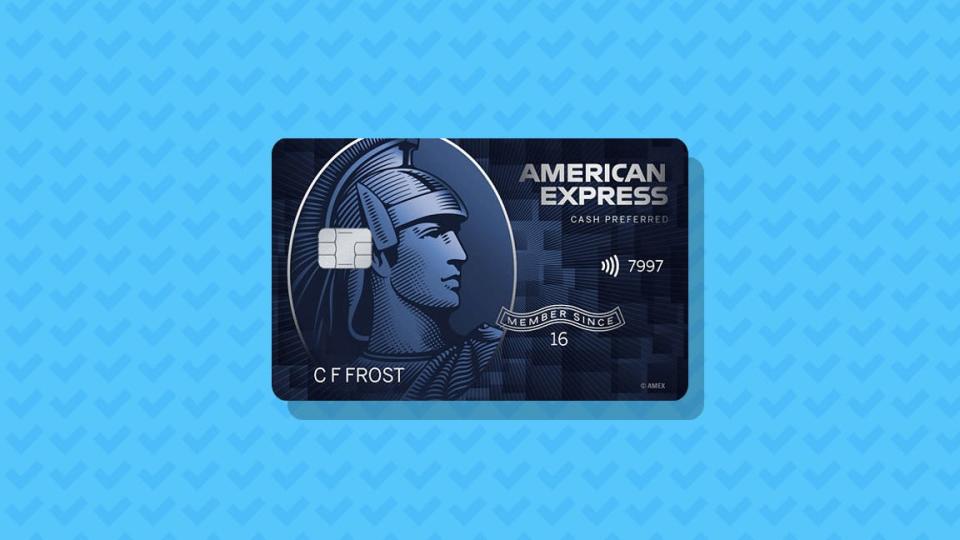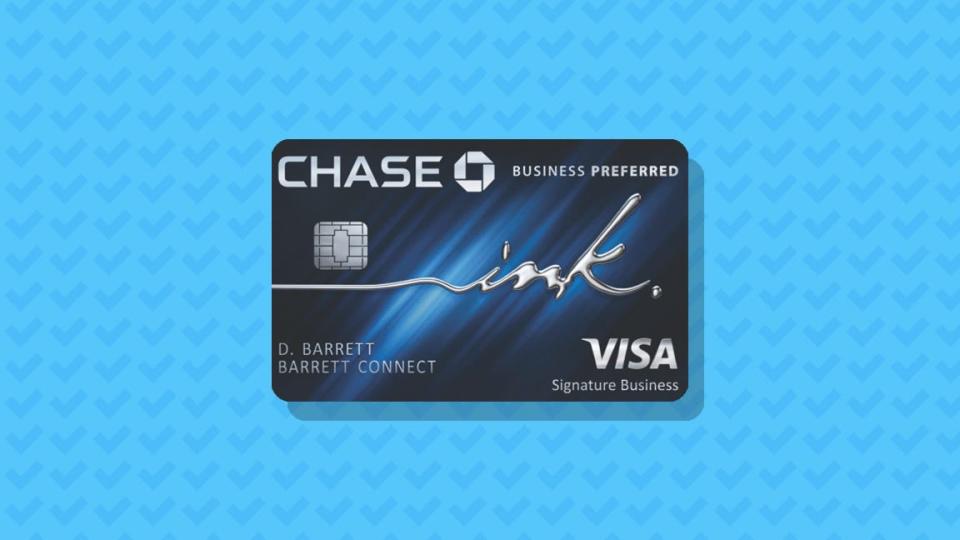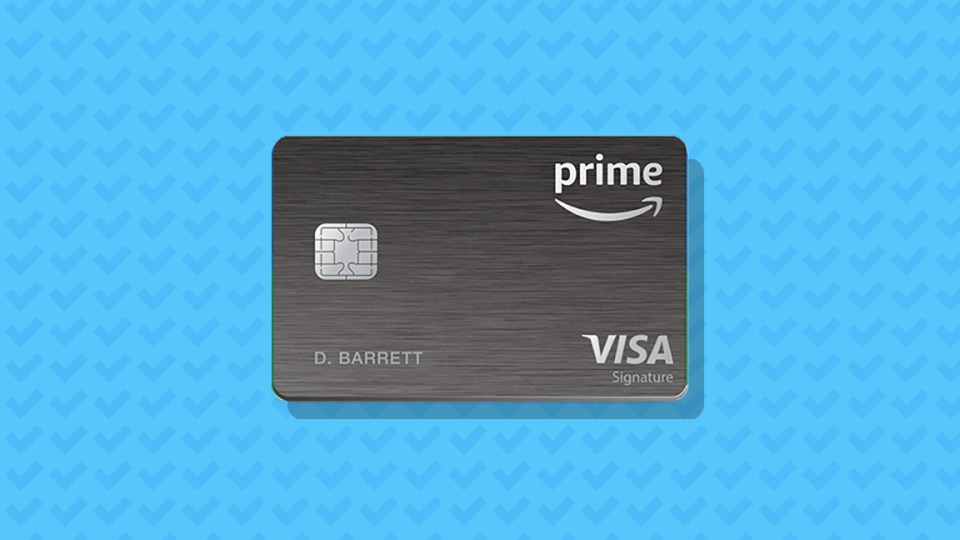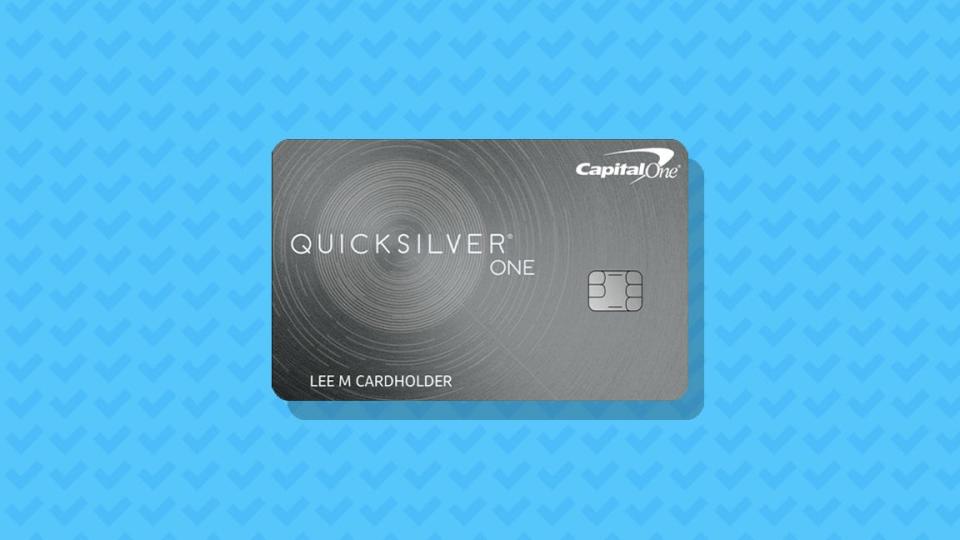The best credit cards for paying your bills

— Our editors review and recommend products to help you buy the stuff you need. If you sign up for a credit card after clicking one of our links, we may earn a small fee for referring you. However, our picks and opinions are independent from USA TODAY's newsroom and any business incentives.
Paying your monthly bills with a credit card seems like a win-win: You can set up autopay and never miss a bill, track your spending, and earn rewards on stuff you were already going to buy. Consumers spend more than $10,000 on food, gasoline, and transportation every year, according to Bureau of Labor Statistics data—and you probably have a cell phone payment, monthly gym membership and other bills to pay on top of those necessities. Earning rewards on those expenses can really take the edge off hitting the "Pay now" button.
This isn't to say that you should get a credit card if you have trouble paying your bills, as a high card balance could tank your credit and run up interest fees. But there are ways to use credit cards without adding too much debt. And if you have to pay bills that are already built in to your budget, you might as well get some rewards in the meantime. Many of our top picks have a low or $0 annual fee, a sign-up bonus, and perks and rewards you're bound to use.
The best credit cards for paying bills
Best overall: Blue Cash Preferred® Card from American Express
Best for your gym membership: World of Hyatt Credit Card
Best for your business phone and internet bill: Ink Business Preferred Credit Card
Best for Amazon purchases: Prime Rewards Visa Signature Card
Best for average credit: Capital One QuicksilverOne Cash Rewards Credit Card
Best for varied bills: Citi® Double Cash Card
Is it a good idea to use credit cards to pay your bills?
For some payments, it's best not to use a credit card at all. Certain bills—such as rent, your tax or utility bills, or your student loan payments—can't be made with credit or can only be paid with a credit card in exchange for a 2% to 4% service fee. That fee usually cancels out any potential rewards you would earn on the card.
However, making a service payment to pay a large bill once or twice might work in your favor, if you need to spend a certain amount to earn a supersized credit card sign-up bonus. Paying your car and homeowners insurance bill in full can also help you meet that sign-up spending requirement, and these usually don't involve a service fee.
No matter which card you use, make sure you come out ahead when charging your monthly bills. Try not to spend more than your budget allows, pay off the balance each month and make the rewards system work for you. The best part is using the points or cash back on purchases you were already going to make.
Need help finding products? Sign up for our weekly newsletter. It’s free and you can unsubscribe at any time.
Things to know about credit cards
Some cards come with an annual fee, but they could offer perks each year that significantly defray (or even negate) the fee. The American Express Blue Cash Preferred, our top pick among the best credit cards to pay bills, is a good example of this.
APR rates and credit limits vary based on your individual credit. Credit limits and interest rates for each card are determined based on each cardholder's personal situation, so we did not take that information into account when evaluating these cards. One thing to remember is that if you pay your card off in full every month, you will not be charged interest.
Banks have the final say on who they accept for a credit card. These recommendations were put together with the assumption that applicants would have average credit or above. That being said, banks decide who they will issue credit cards to using criteria including, but not always limited to, an individual's credit score when evaluating each applicant.
Best overall: Blue Cash Preferred from American Express

We chose this as the best all-around card for paying bills because it hits the major expenses in most households. Cardholders earn 6% cash back at U.S. supermarkets on up to $6,000 per year (then 1%), 6% cash back on select streaming services, 3% cash back at U.S. gas stations and on transit purchases, and 1% cash back everywhere else. The card comes with a $95 annual fee, which is waived for the first year. After that, the cash-back rewards can easily make up for it—as long as you typically spend money on these types of purchases. See rates and fees as terms apply.
The card also has a “Pay It Plan It” feature, which lets you split purchases over $100 into fixed monthly payments. You still earn rewards on these purchases and won’t pay interest on them. However, you’ll pay a fixed monthly fee to use this plan, which is 0% for the first 12 months and then up to 1.17%. The fee may be low enough that it won’t cancel out your rewards, but make sure you come out ahead. This could be a good tool for paying large bills, such as your six-month insurance premium.
Overall, the card is a solid pick for your wallet, whether you use it every day or just for paying bills.
Learn more about the American Express Blue Cash Preferred
Best for paying your gym membership: World of Hyatt Credit Card

It’s not often a credit card rewards you for hitting the gym. The World of Hyatt Credit Card gives you 2 points for every dollar spent on fitness club memberships, making it our pick for paying your gym bill. You also get up to 9 points for every dollar spent on Hyatt purchases; 2 points per dollar on dining out, airline tickets and mass transit; and 1 point per dollar spent elsewhere.
You can redeem points for hotel stays, transfer to airline partners or use them toward car rentals. While those are great rewards and redemption options if you travel often, you have fewer choices and less flexibility compared to other cards on this list. You’ll also have to weigh if the $95 annual fee is worth it for you.
As a bonus, new cardholders earn 25,000 points after spending $3,000 on purchases within the first three months of account opening and another 25,000 points after spending $6,000 total within six months. To help you meet the spending requirement, consider stocking up on gym essentials, such as new running shoes, energy bars and fitness clothes, during this time frame.
Learn more about the World of Hyatt Credit Card
Best for paying your business phone and internet bill: Ink Business Preferred Credit Card

If your phone, cable and internet bill takes up a large chunk of your business’s expenses, this card gives you a solid rewards rate in that category, plus a cell phone protection plan to go with it. Cardholders earn 3 points per dollar on the first $150,000 spent on phone, cable and internet services; travel; shipping costs; and select advertising (and 1 point per dollar spent everywhere else). It’s a top-notch rewards rate with a high spending cap, which should more than offset the $95 annual fee.
If you charge the phone bill to your card, you get cell phone protection that covers up to $600 per claim (after a $100 deductible) if your cell phone is damaged or stolen—for you and the employees listed on your monthly cell phone bill.
The card also comes with other business-friendly perks, such as free employee cards and integration with your bookkeeping software, making it an all-around great credit card for business owners.
Learn more about the Ink Business Preferred Credit Card
Best for Amazon purchases: Prime Rewards Visa Signature Card

Find yourself frequently hitting the "Order now" button on Amazon.com? The Prime Rewards Visa Signature Card helps you get a little back on those purchases. Cardholders earn 5% back at Amazon.com and Whole Foods Market (including physical Whole Foods Market stores, 365 stores and wholefoodsmarket.com), plus 2% back at restaurants, gas stations and drugstores, and 1% back everywhere else. While there's no annual credit card fee, you'll need a Prime membership, which costs $119 per year.
Learn more about the Prime Rewards Visa Signature Card
Best for average credit: Capital One QuicksilverOne

If you're focused on building credit, then paying bills on time and zeroing out the balance each month will help you get there. Why not get rewards on those bills while you're at it? The QuicksilverOne from Capital One has a flexible credit requirement—you could qualify with average credit, according to the website—and gets you 1.5% cash back on every purchase.
While many cash-back cards restrict how and when you can redeem rewards, this card allows you to redeem cash back in any amount at any time. The built-in perks, such as extended warranty, travel accident insurance and 0% foreign transaction fees, rounds out this card as a solid pick for people who are building credit.
However, there are a few trade-offs with this card. The annual percentage rate is pretty high, at 26.99%, and the card comes with a $39 annual fee. You'd have to spend at least $217 a month to offset the annual fee and pay off the balance each month to avoid interest costs.
Consider setting up autopay on all your eligible bills and connecting them to this credit card. You'll be able to track your bills in one place and potentially spend enough to more than offset the annual fee.
Learn more about the QuicksilverOne from Capital One
Best for varied bills: Citi Double Cash

If you want to put all your bills on one card and earn cash back, but don’t want to fuss with a complicated rewards system, the Citi Double Cash card has one of the best cash-back rates on a card with no annual fee.
You get a total of 2% cash back on every purchase: 1% when you charge it to the card and 1% when you pay it off. There’s no limit to how much you earn and no annual fee, and you pay no interest for 18 months on balance transfers made within four months of account opening (then a variable APR). You can redeem cash back as a statement credit, bank account deposit or a check, and the minimum redemption amount is $25.
While it offers pure simplicity, the Citi Double Cash also has no sign-up bonus, no bonus rewards categories and not many built-in perks. If you’re looking to step up your rewards game, consider pairing this card with another on this list. Charge eligible bills to the credit card that rewards the bonus categories you typically use, then put your other bills on this card to earn a solid 2% cash-back rate. Or, if you’ve met the spending cap on a bonus rewards category, you can start charging the bill to the Double Cash card until the cap resets.
Learn more about the Citi Double Cash
Please note: The offers mentioned above are subject to change at any time and some may no longer be available.
Reviewed has partnered with CardRatings for our coverage of credit card products. Reviewed and CardRatings may receive a commission from card issuers.
See rates and fees for the Blue Cash Preferred Card from American Express.
Other top credit card options
Should you pay off your credit card every month?
Whenever possible, it is best to pay your balance in full every month. You’ll avoid interest charges, for one, and you’ll also maintain a low credit utilization ratio. This percentage is calculated by dividing your monthly balance by your total credit line, and experts recommend keeping it at or below 30%.
But we also get that life happens, and sometimes you bring home less bacon than you anticipated, or an unexpected expense rears its pricey head. Whatever you do, make the minimum payment, and make it on time.
If you can’t swing the whole balance but you do have some cash to spare, consider paying a little more than what you have to pay. This will help lower your utilization ratio and keep your credit score in check. We love a good compromise, don’t you?
The product experts at Reviewed have all your shopping needs covered. Follow Reviewed on Facebook, Twitter, and Instagram for the latest, deals, product reviews, and more.
This article originally appeared on Reviewed: The best credit cards for paying your bills

